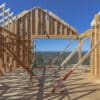By Dan Harkey
Real Estate & Private Money Finance Consultant
m: 949 533-8315 | e: [email protected]
Say Hello to Dolly Llama from the Mini-Farm
What is the Difference Between Mobile & Manufactured Homes?
The terms mobile and manufactured homes are often used interchangeably. The difference between the two types of dwelling (structures) is the date they were built. According to HUD, mobile homes were factory-built before to June 15, 1976, and manufactured homes were built after that date. Both mobile homes and manufactured homes are regulated by the Federal Department of Housing and Urban Development (HUD).
Mobile homes or modular home communities are trendy in metropolitan and suburban areas all over the United States. Most of these communities are owned by third-party investors who rent or lease to the tenant occupants.
Some parks have obtained a California Subdivision Map Act approval and have been subdivided into tracts of small parcels and held in fee ownership by the occupants. A parcel may be owned in fee title. Fee ownership parks will usually have CC&Rs to govern actions allowed by the property owners. Properties with leased tenancy may have short-term or loan-term tenants. Generally, modular communities are well kept and provide a quality lifestyle.
Are Mobile Homes Considered Personal Property?
When mobile or modular homes are located on a rented parcel owned by a third party, the property is considered “personal property.”
A family owns a property on two and one-half acres of land with a fixed foundation manufactured home. It has a cement driveway with lovely landscaping. The grounds are surrounded by modern vinyl ranch-style fencing around the entire property to give it an estate feeling.
The family enjoys a few small animals such as chickens, ducks, and goats as their pets; they also have a very special local attraction, Dolly the Llama. They constructed quality outbuildings and cages for the animals for variable weather conditions. A modular barn with an extended workshop and room for livestock was also built.
Can this family obtain a real estate loan secured by this parcel? Let’s discuss the options below.
This modern manufactured home is attractive and well built; The occupancy generally offers the convenience of township amenities but is characterized by semi-rural living, such as a mini-farm. Usually, rural land parcels are larger and provide fewer governmental land use and zoning restrictions.
Most rural communities are not subject to covenants, conditions, and restrictions (CC&Rs) recorded by private declarants that establish limitations on the use of the property. Limitations of land use can be vast for people wanting to develop an upscale neighborhood living.
The price of conformity is generally not an issue. These folks are too busy growing families, tending to their farm animals, and earning a living.
Questions to Ask Before Purchasing a Modular Home
Here are a few critical questions for purchasing a modular home; a buyer and buyer’s agent, and a lender should ask the same questions:
- Does the manufactured homeowner rent the land parcel space from a third party? The conversion from a personal property asset into a real property asset would not be economically beneficial to a tenant where another party owns the parcel.
- Does the prospective borrower currently have a fee ownership interest in the land parcel when the purchase transaction is completed?
- Is the land parcel in a community association of properties subject to rules, such as covenants, conditions, and restrictions? Does the community have written bylaws?
- Is the land parcel in an urban, suburban, or semi-rural location?
- Is the land parcel zoned correctly for its intended use?
- Is the land parcel on a paved or dirt road with municipal utilities, including water, sewer, gas, and electricity? Most urban modular home parks are connected to city sewer, gas, and water.
- Does the property use an underground septic system, usually made of concrete, fiberglass, or plastic? Wastewater and sewage flow into this reservoir system. These systems work efficiently with water permeating through leech lines into the ground with an anaerobic digestion process for organic materials. Periodic clean-out maintenance is required, usually from a third-party maintenance vendor.
- Are electricity and natural gas available from a public community facilities district? What about a propane tank for gas supplied to the property?
- What is the description of the manufactured home, including size, age, amenities, and is the home installed on a permanent cement foundation? Were the slab and installation engineered and permitted by the local municipal building department?
- What is the structure’s overall condition, including the exterior, interior, and sub-structure?
- Are there reasonable cost estimates to bring the manufactured home and outbuildings up to current building standards with current building supplies and improvements?
Are Manufactured Homes Personal or Real Property?
Legally manufactured homes are built as dwelling units of at least 320 sq. ft. in size, or more, with a permanent under-structure steel chassis to assure both initial and continued transportability. Crews construct the manufactured homes in a warehouse. The homes contain wheeled chassis and are towed to the location by commercial trucks to be placed upon a fixed predesignated foundation.
The question arises whether the manufactured home is personal or real property. The Federal Department of Housing and Urban Development (HUD) will issue a certification label posted on the manufactured home regardless of whether it is characterized as personal or real property. When the manufactured home is completed and delivered to the ultimate owner and user, the California Department of Housing and Community Development (HCD) will issue a license and certification evidencing the ownership of the home that it will be taxed as personal not real property.
Suppose a manufactured home is delivered to a mobile home park and installed on a rented space on a property owned by a third party. In that case, the manufactured home will remain personal property subject to the licensing and certification by HCD.
If the land parcel is owned with fee simple title and a manufactured home is installed on blocks with temporary piers (not on a permanent foundation), it will remain personal property. Modifying personal property to a real property status requires a permanent foundation. When manufactured homes are installed on permanent foundations, they will be considered non-movable and become real property, subject to an administrative approval process. At that point forward, the owner will have real property taxes due annually.
Suppose an owner or purchaser of a manufactured home decides that it is in his best interest to install a permanent foundation; In that case, a permit must be obtained from the local building official, who will inspect and approve the dwelling for occupancy. The installation of the home and the construction of the foundation must comply with all applicable building codes and zoning ordinances.
An owner must also obtain an approved manufacturer’s installation instruction, with plans and specifications, and signed by a California licensed engineer. The engineer will complete the calculations necessary for the structural integrity design of a foundation system and how the manufactured home is to be permanently installed thereupon. The engineer’s plans and specifications must be submitted to the city or county building inspection department. The building official may ask for the plans and specifications to be submitted to the planning department to comply with the zoning ordinances. The local municipality that issues the building permit will charge a fee.
In California, the manufactured home will remain a personal property asset until the owner applies for and obtains a “433a permanent foundation certification”. The certification refers to a titling document called “Installation of a Manufactured Home on a Foundation Systems” that comply with the California Code of Regulations, Title 25, Chapter 2, Section 18551. The completed process and form must be recorded in county records and will be reflected in a future title search.
Upon completing the loan transaction or conveying the property title, a title company will issue a title endorsement (ALTA 7). The ALTA 7 is an endorsement that will ensure the reassignment of ownership of the manufactured home from personal to real property.
There are many 433a permanent foundation independent contractors familiar with theprocess. Do not attempt this conversion process without a competent specialist (either a knowledgeable consultant, engineer, architect, or lawyer).
I am using the process in California, although other states have similar procedures. California tends to make everything much more complex so that the state and municipal governments can charge fees for every action. Redundant fees are a form of taxation with little or no benefit to the public.
If the conversion process from personal to real is not completed, the property value will only be limited to vacant land value. Appraisal of comparable neighborhood sales will be limited to similar land parcels.
Additional Reading
Here are a few helpful articles about mobile and manufactured homes:
- https://www.nclc.org/images/pdf/manufactured_housing/cfed-titling-homes.pdf
- https://singlefamily.fanniemae.com/media/18186/display
- https://www.hud.gov/program_offices/housing/rmra/mhs/faqs
- https://housing.nv.gov/ManfHousing/Titles/#:~:text=Can%20the%20home%20be%20converted,your%20local%20county%20assessor’s%20office
- https://homeguides.sfgate.com/convert-mobile-home-real-property-72277.html
This article is intended for educational purposes only and is not a solicitation.
© Dan Harkey. This material’s unauthorized use or duplication without express and written permission from this author or owner is strictly prohibited. The article may be used in marketing efforts, provided that full and clear credit is given to Dan Harkey. The credit displayed when you forward any article must include Dan Harkey, Business & Finance consultant. You are not authorized to modify the articles title or the content.
This article is an overview for a general educational purpose only. The information presented should not be relied upon without the advice of counsel.
Dan Harkey is a contributing author to Weekly Real Estate News and is a Business & Financial Consultant. He can be contacted at 949-533-8315 or [email protected].














